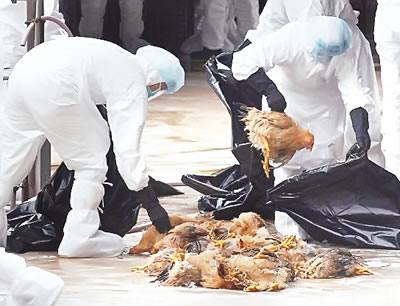A Mexican man has died from bird flu in the first confirmed case of a human infection with the H5N2 variant, the World Health Organization (WHO) announced on Wednesday.
The 59-year-old man, who passed away on April 24 after experiencing fever, shortness of breath, diarrhea, and nausea, had “no history of exposure to poultry or other animals” and suffered from “multiple underlying medical conditions,” according to a WHO statement.
The man, a resident of the State of Mexico, was hospitalized in Mexico City and died the same day, the statement said.
This marks the “first laboratory-confirmed human case of infection with an influenza A(H5N2) virus reported globally,” the WHO added.
Mexican health authorities reported the confirmed case to the UN health body on May 23 after conducting laboratory tests.
The source of the virus exposure remains unknown, the WHO stated, although H5N2 cases have been reported in poultry in Mexico.
H5N2 cases were detected at a backyard poultry farm in Michoacan state in March, with other outbreaks identified in the State of Mexico, according to the UN health body.
However, establishing a link between the human case and the poultry infections has so far been impossible, with the WHO estimating the risk to people as “low.”
Mexico’s health ministry stated that the deceased man had a history of chronic kidney disease, type 2 diabetes, and long-standing systemic arterial hypertension.
“There is no risk of contagion for the population,” the statement added, noting that “all samples from identified contacts (of the patient) have been negative.”
Authorities are monitoring farms near the victim’s home and have set up a permanent monitoring system to detect other cases in wildlife in the area, the statement added.
A different variant of bird flu, H5N1, has been spreading among dairy cow herds in the United States, with a small number of human cases reported.
However, none of these cases are human-to-human infections, with the disease instead jumping from cattle to people, authorities have said.
